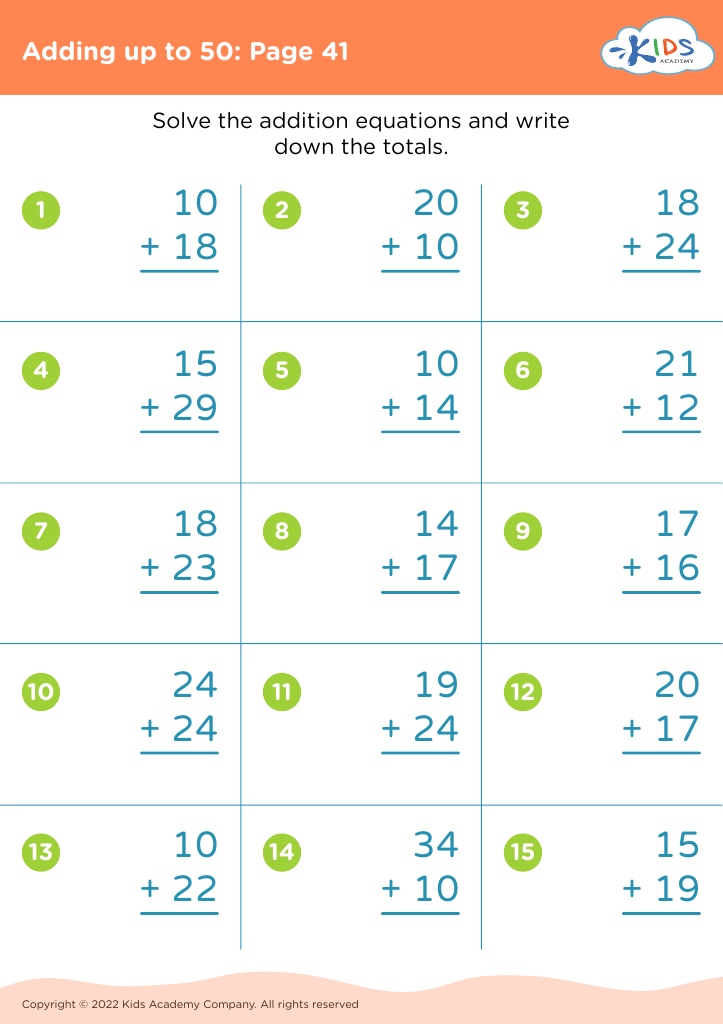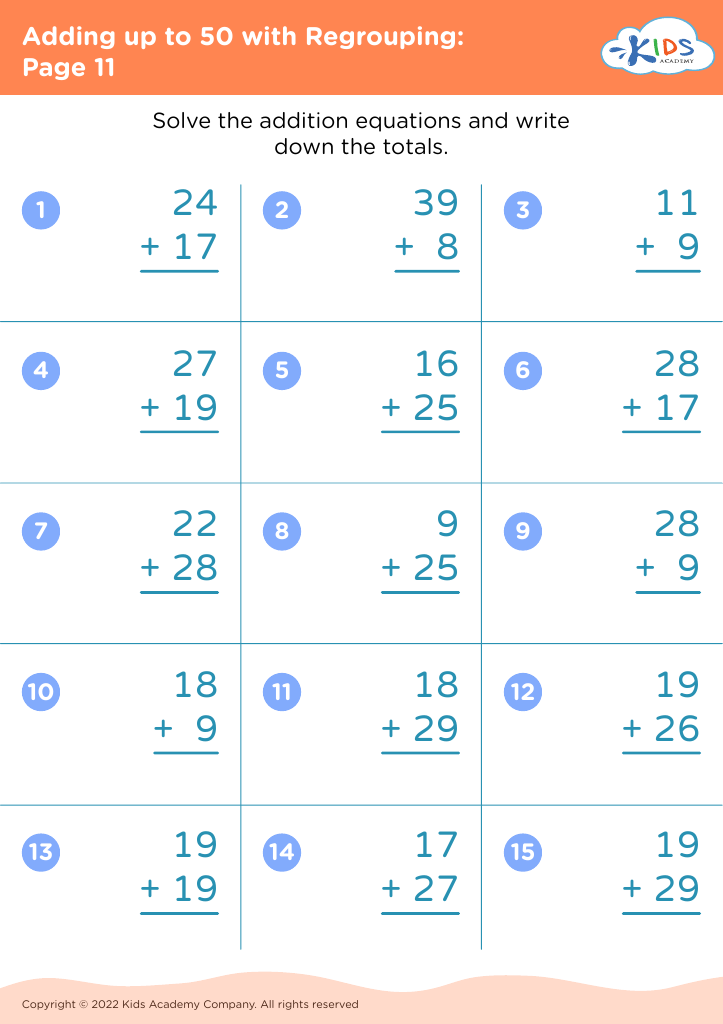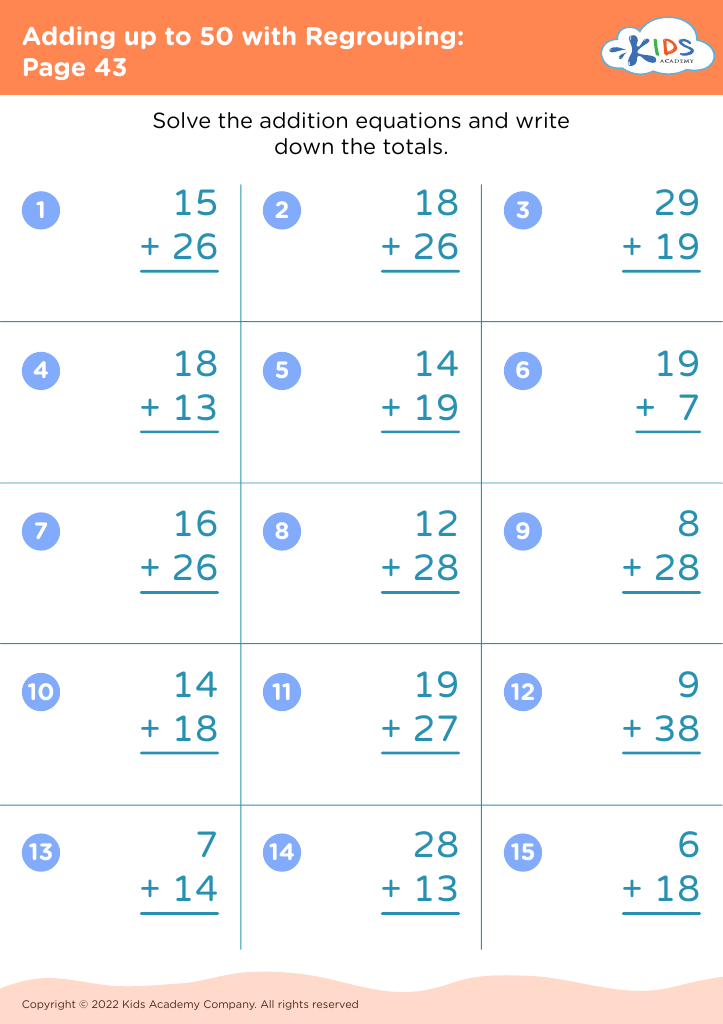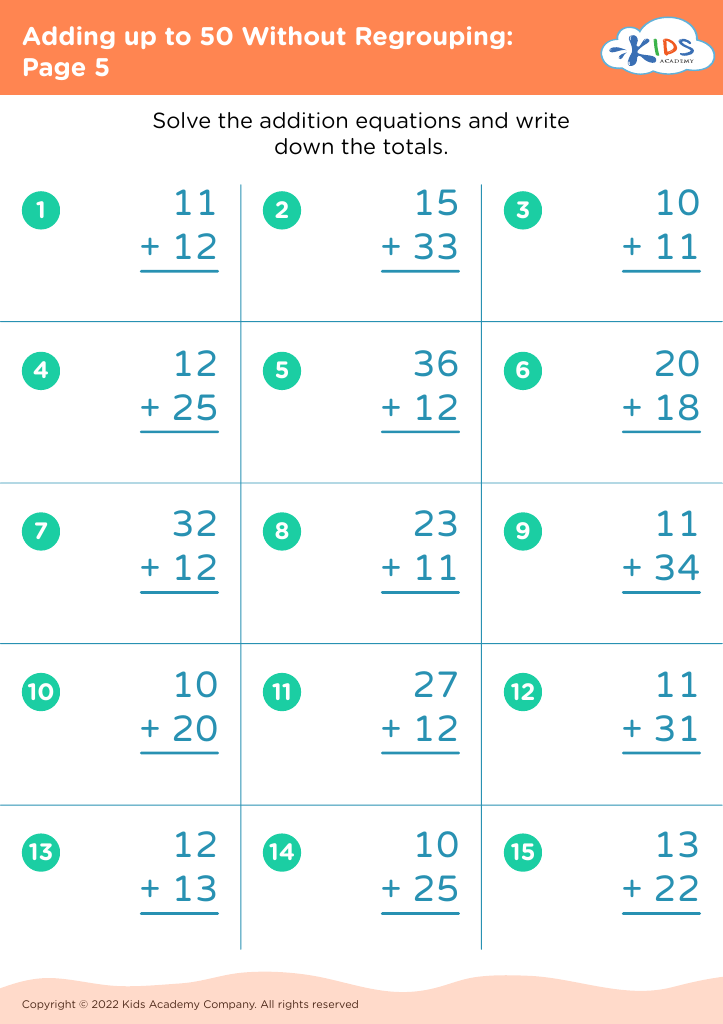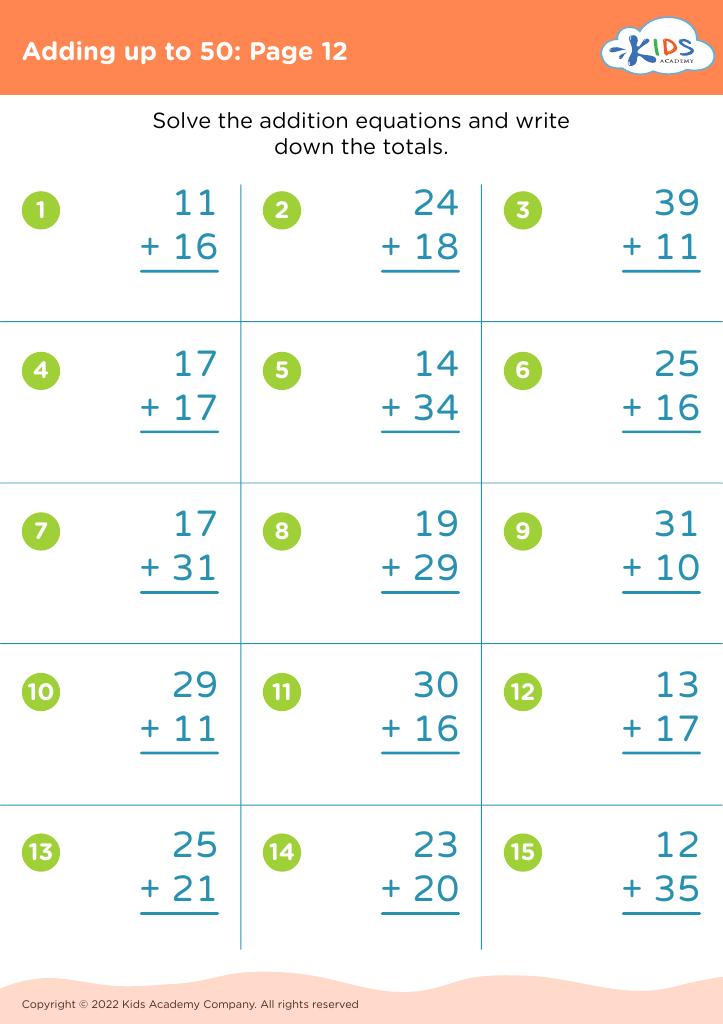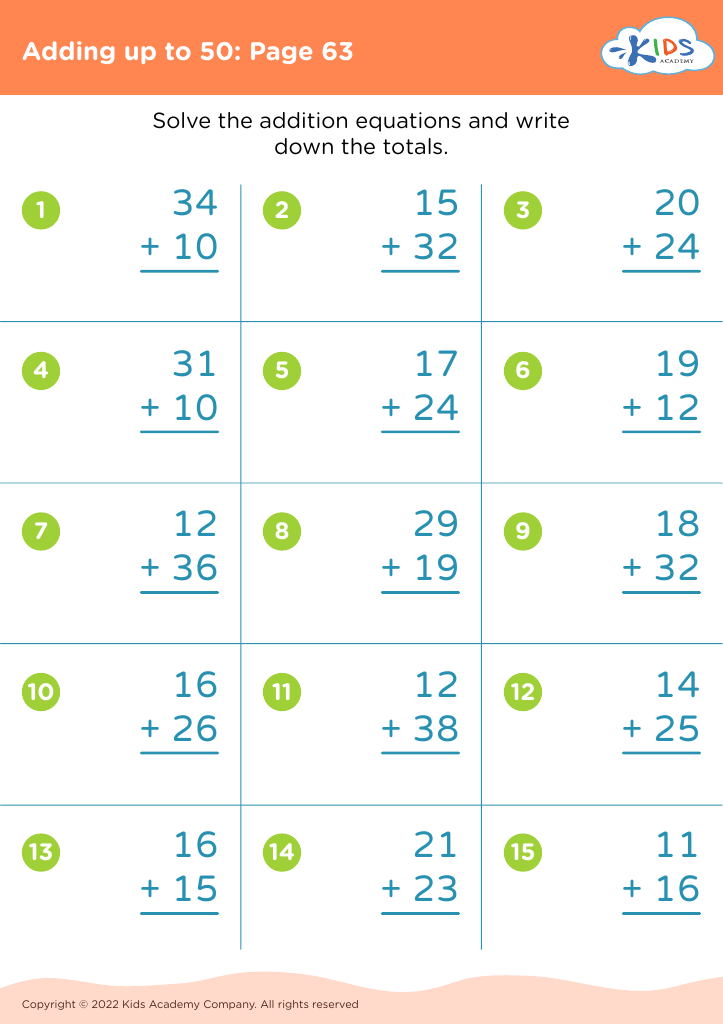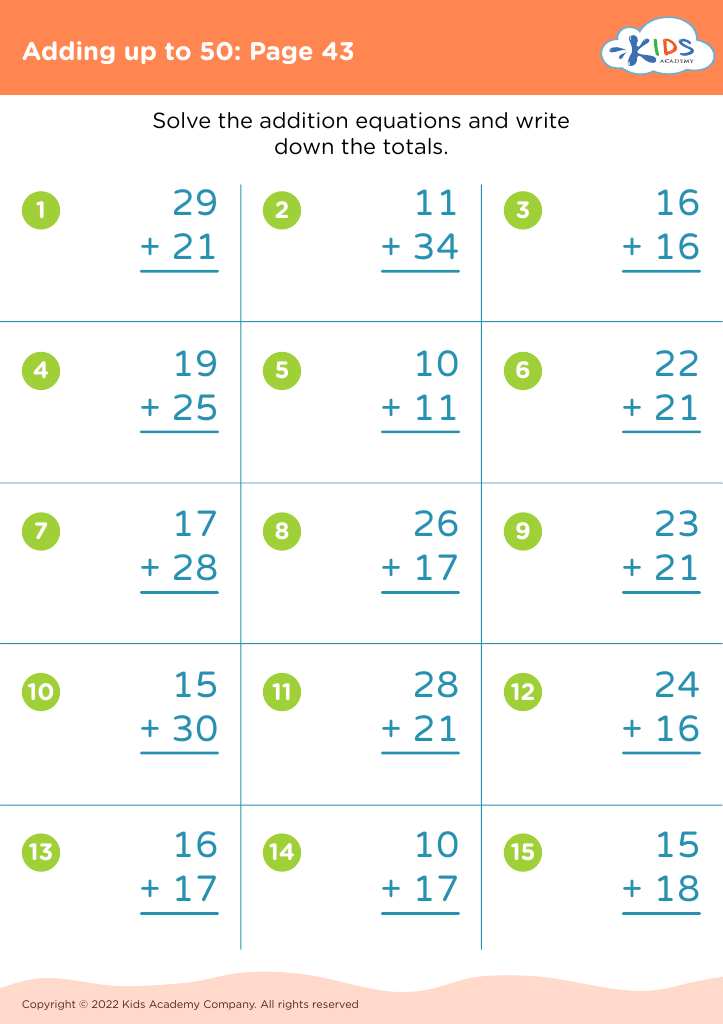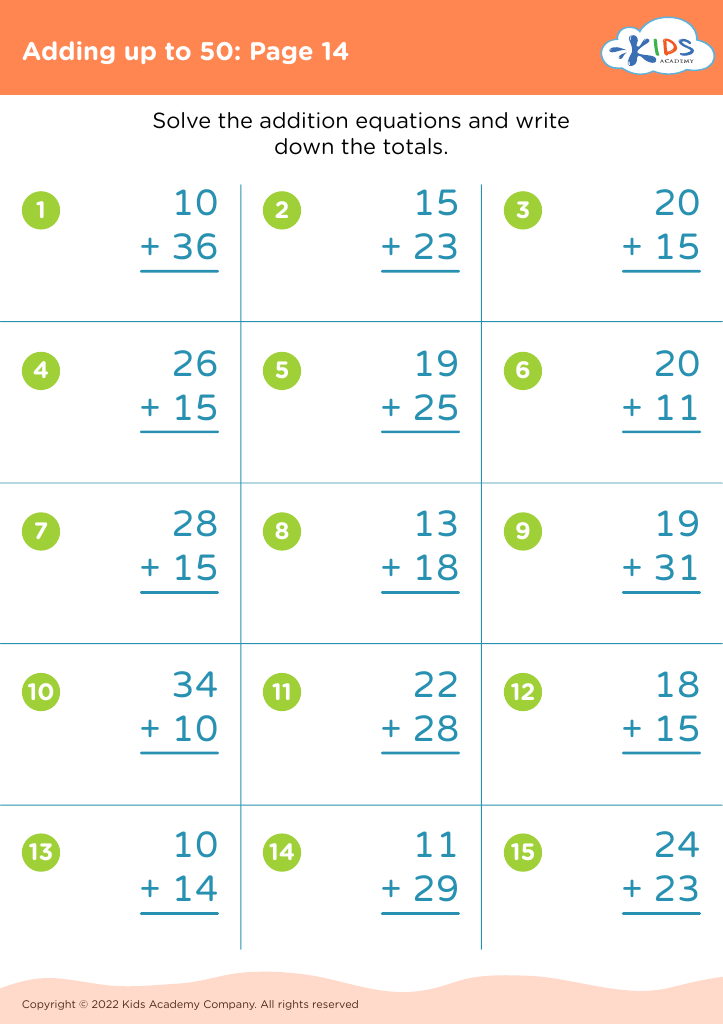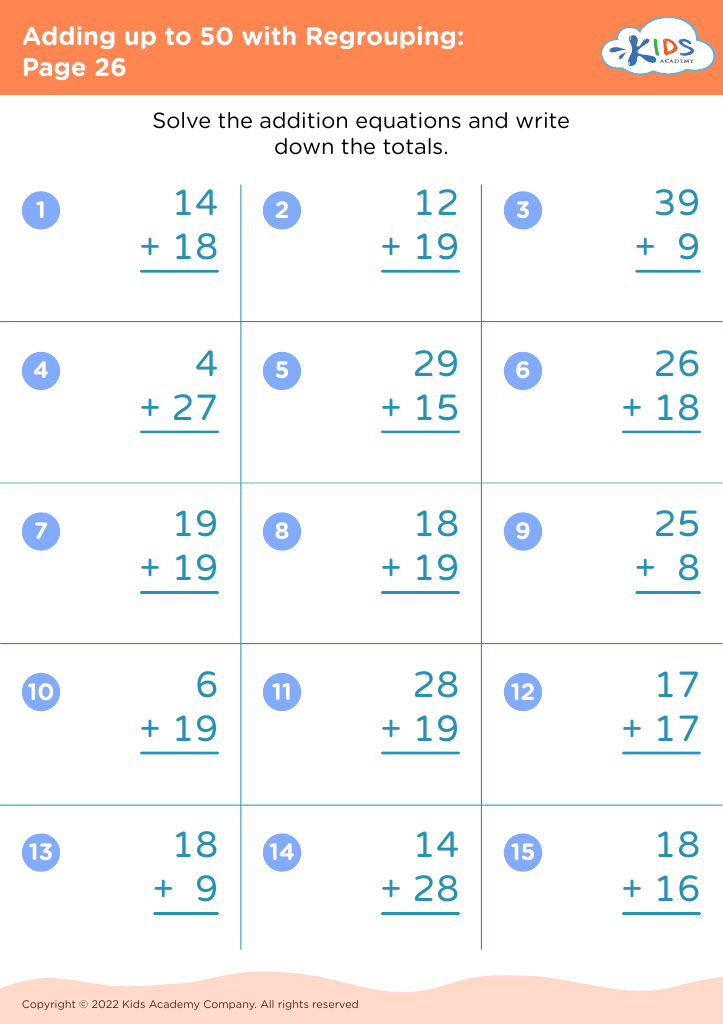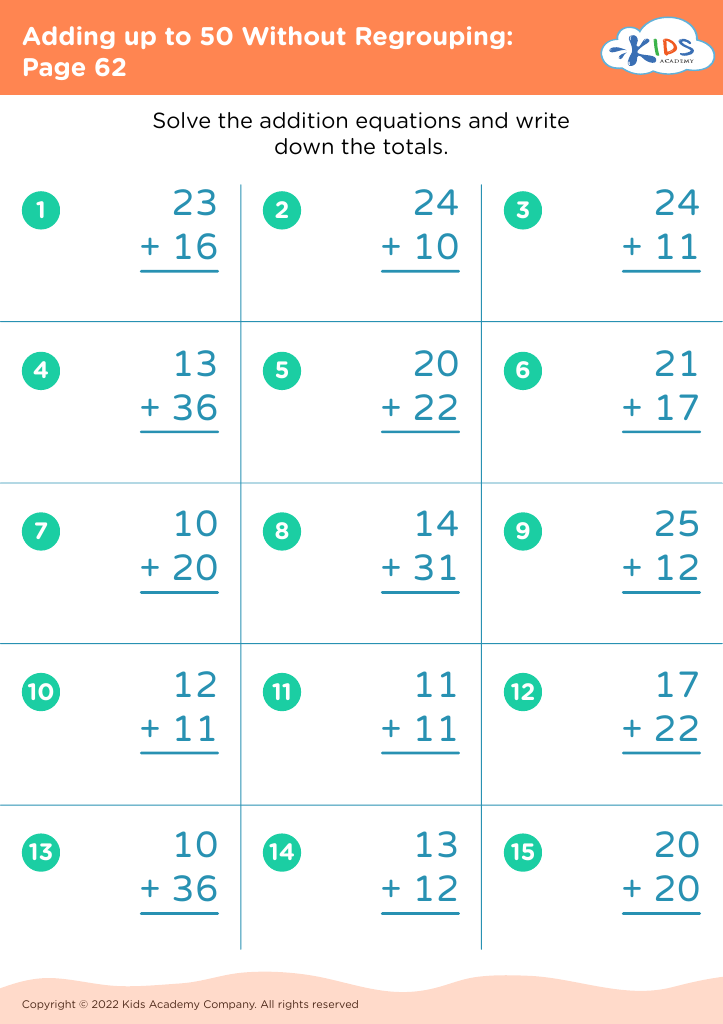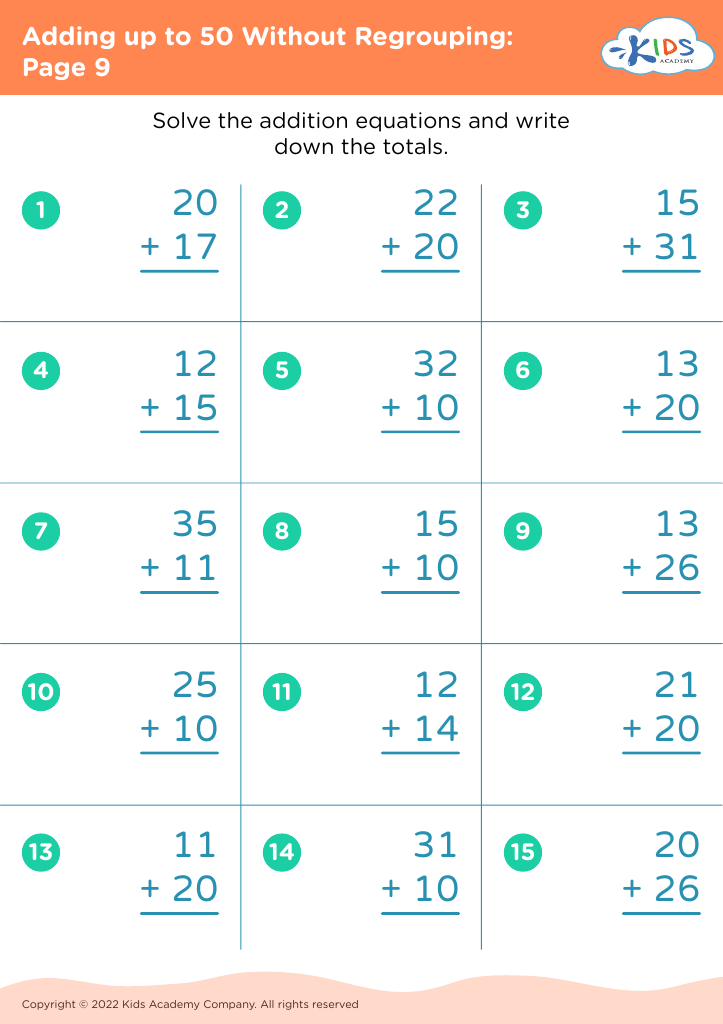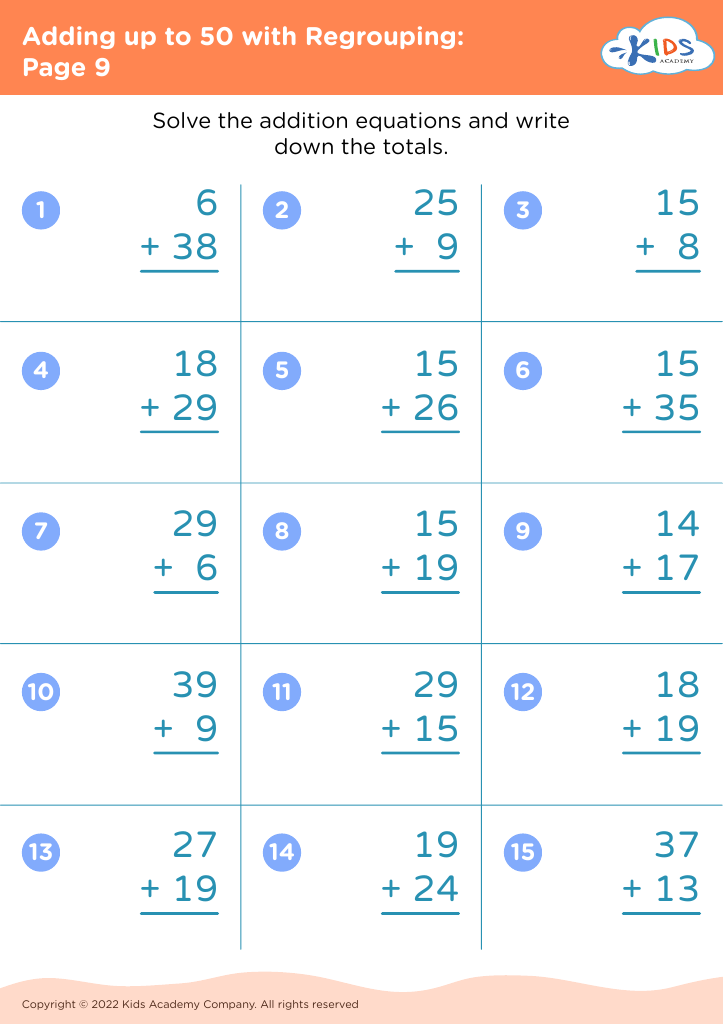Number Recognition Adding up to 50 Worksheets for Ages 3-8
43 filtered results
-
From - To
Discover our engaging "Number Recognition Adding up to 50 Worksheets" designed specifically for children ages 3-8! These worksheets provide a fun and interactive way for young learners to master number recognition while building essential math skills. Featuring colorful visuals and age-appropriate activities, children will confidently identify numbers and practice simple addition within the range of 50. Each worksheet encourages hands-on learning, promoting cognitive development and enhancing fine motor skills. Ideal for home or school use, our resources help create a nurturing learning environment for early math enthusiasts. Download today and watch your child's numeracy skills flourish!
Number recognition and addition skills form the foundation for a child’s future mathematical understanding. For children aged 3-8, recognizing numbers up to 50 is an essential milestone in early childhood education that fosters not only mathematical skills but also cognitive development. When children can identify and manipulate numbers, they begin to understand their value and relationship, enabling them to build more complex mathematical concepts later on.
This skill encourages logical thinking and problem-solving abilities, both critical for success in academia and everyday life. By mastering number recognition and beginning addition, children enhance their confidence with math, making them more likely to engage positively with the subject in the future. Furthermore, early experiences with numbers help in developing literacy skills, as recognizing patterns and sequences in numbers parallels reading and writing development.
Parents and teachers should prioritize this foundational skill, creating opportunities for playful and engaging learning through games, everyday activities, and interactive experiences. Investing time in number recognition and addition not only boosts a child's academic readiness but also lays the groundwork for a lifelong appreciation of mathematics and learning in general. Ultimately, supporting children during this developmental stage promotes critical thinking and overall academic success.
